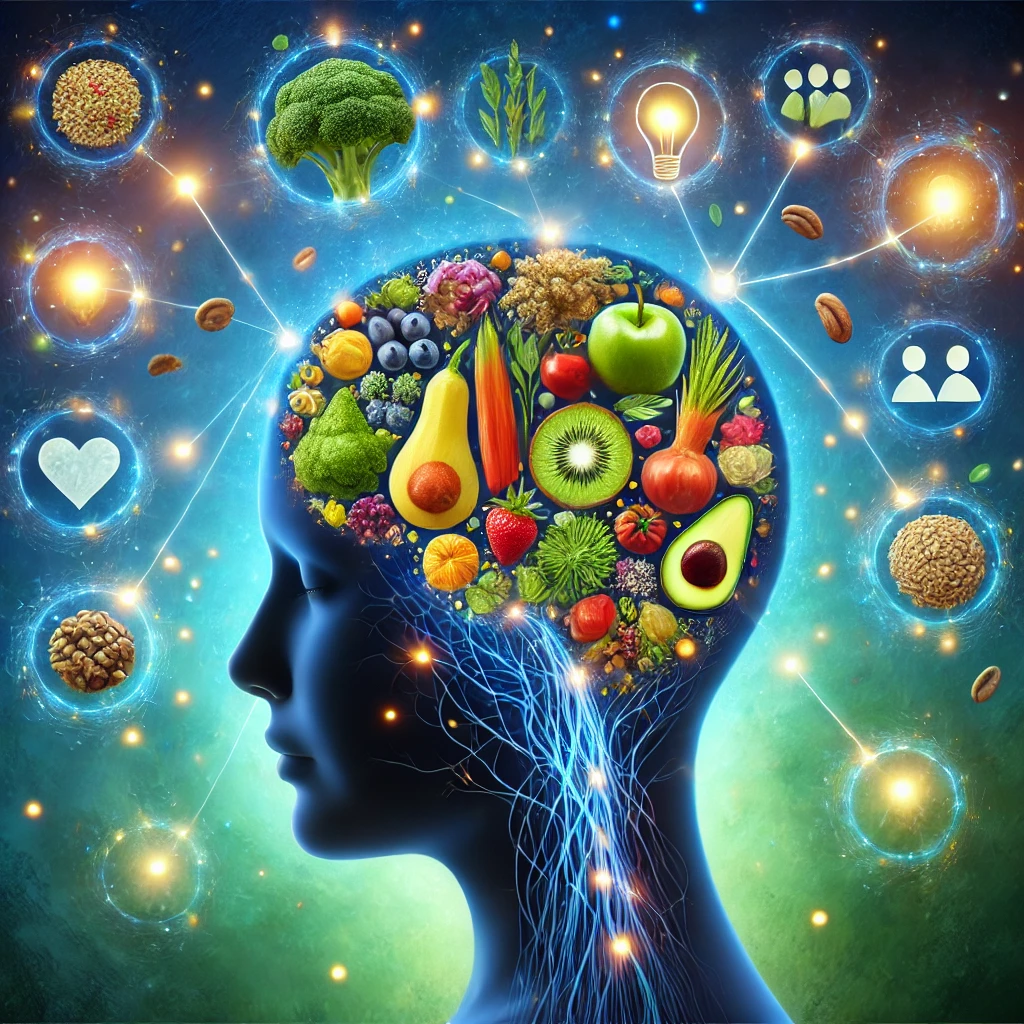Table of Contents
Understanding Mental Health: The Basics
Mental health encompasses a broad range of emotional, psychological, and social well-being. It influences how individuals think, feel, and act as they navigate life’s challenges. According to the World Health Organization, mental health is defined as a state of well-being in which individuals realize their potential, can cope with normal stresses of life, work productively, and contribute to their communities. This definition emphasizes the critical role mental well-being plays in overall quality of life.
Common mental health disorders include anxiety, depression, bipolar disorder, and schizophrenia, among others. Each of these conditions can manifest in various ways and affect individuals differently. For instance, anxiety may lead to excessive worry, physical symptoms, and avoidance behaviors, while depression often results in persistent sadness, loss of interest, and difficulty in daily functioning. Understanding these disorders is vital as they can significantly impact one’s ability to engage in everyday activities and maintain healthy relationships.
Mental health influences overall health far beyond psychological aspects. Poor mental health can result in diminished physical well-being and can increase the risk for chronic conditions such as heart disease or obesity. Furthermore, individuals may struggle with maintaining a healthy lifestyle, engaging in social circles, or performing effectively at work. The interconnectedness of mental health and physical health is a crucial area of study, particularly as researchers explore how various factors, including nutrition, can impact mental states and overall well-being.
Recognizing the importance of mental well-being is essential for fostering a supportive environment in personal, academic, and professional settings. By understanding the basics of mental health and its disorders, one can begin to appreciate the intricate relationship between mental health and factors like nutrition. This foundational knowledge lays the groundwork for exploring how dietary choices may influence mental states and well-being.

The Role of Nutrition in Mental Health
Nutrition plays a pivotal role in shaping mental health, with various nutrients affecting brain function and emotional well-being. Research has indicated that specific dietary patterns can significantly influence mood and cognitive performance. Particularly, the intake of omega-3 fatty acids, which are primarily found in fatty fish like salmon and walnuts, has been linked to lower rates of depression and anxiety. Omega-3s contribute to the structural integrity of neurons and the production of neurotransmitters, which are essential for mood regulation.
Furthermore, B vitamins, including B6, B12, and folate, are critical for brain health. These vitamins are involved in synthesizing neurotransmitters such as serotonin and dopamine, which directly impact mood and emotional stability. Deficiencies in these nutrients can lead to an increased risk of developing mental health disorders. For instance, low levels of vitamin B12 have been associated with memory loss and cognitive decline, while deficiencies in folate may exacerbate symptoms of depression.
A well-balanced diet also plays a significant role in maintaining emotional resilience. Diets rich in fruits, vegetables, whole grains, lean proteins, and healthy fats provide the body with essential antioxidants and anti-inflammatory compounds that help protect against oxidative stress, a condition linked to various mental health issues. The Mediterranean diet, characterized by a high intake of plant-based foods and healthy fats, has been shown to support not only physical health but mental well-being as well.
It is evident that maintaining a nutrient-rich diet is paramount for fostering a healthy mind. Addressing dietary deficiencies may provide a pathway for alleviating mental health problems and promoting overall emotional health. Understanding the connection between specific nutrients and mental health can empower individuals to make informed dietary choices that support their psychological well-being.
Research Studies: Evidence Linking Diet to Mental Health
The intricate relationship between nutrition and mental health has garnered increasing attention in the field of psychological and nutritional science. A plethora of research studies, encompassing both observational studies and clinical trials, have illuminated the profound impact that dietary habits can have on mental well-being. Numerous studies indicate that a balanced diet rich in specific nutrients correlates positively with enhanced mental health. For instance, a systematic review published in the journal Nutritional Neuroscience found that individuals adhering to a Mediterranean diet—characterized by an abundance of fruits, vegetables, whole grains, and healthy fats—exhibited lower levels of depression and anxiety compared to those with a more Westernized diet.
In cohort studies, researchers have observed trends showing that diets low in essential nutrients, such as omega-3 fatty acids, B vitamins, and antioxidants, may increase the risk of developing mental health disorders. For example, a clinical trial demonstrated that supplementation with omega-3 fatty acids led to significant reductions in depressive symptoms among individuals diagnosed with major depressive disorder. This suggests that specific dietary interventions can indeed have a tangible effect on mental health outcomes.
Furthermore, studies focusing on populations undergoing dietary modifications reveal compelling evidence supporting the beneficial role of nutrition in mental health management. A notable trial examined the effects of a psycho-education program coupled with dietary changes, resulting in marked improvements in both mood and cognitive functioning for participants. These findings underscore the necessity of considering dietary habits in the holistic treatment of mental health issues.
Despite the compelling evidence linking nutrition and mental health, it is crucial to approach this relationship with a nuanced understanding. Many variables, including lifestyle factors and pre-existing health conditions, can influence individual outcomes. As research evolves, the field is gradually moving toward integrating nutrition into broader mental health care strategies, marking a significant step forward in promoting overall psychological well-being.
Practical Dietary Recommendations for Mental Well-being
Enhancing mental health through nutrition is a multifaceted approach that involves selecting the right foods and fostering healthier eating habits. One effective way to boost mental well-being is through the incorporation of mood-enhancing foods into daily meals. Whole foods that are rich in nutrients, such as fruits, vegetables, lean proteins, and whole grains, have been shown to positively affect mood and cognitive function. For instance, omega-3 fatty acids, commonly found in fatty fish, flaxseeds, and walnuts, play a crucial role in brain health and may help alleviate symptoms of depression.
Additionally, foods rich in antioxidants, such as berries, dark chocolate, and green leafy vegetables, can combat oxidative stress and inflammation, both of which are linked to mental health disorders. Incorporating complex carbohydrates, like oats and quinoa, can also stabilize blood sugar levels, positively impacting mood and energy levels throughout the day. It is advisable to create balanced meals that include a variety of food groups, which ensures a broader spectrum of nutrients is consumed, supporting overall mental health.

Developing healthier eating habits is vital for long-term benefits. Regular meal planning can help individuals make informed choices and avoid impulsive eating that often leads to unhealthy food consumption. Furthermore, scheduling regular meals and snacks can prevent blood sugar dips that may trigger irritability and mood swings. Staying hydrated is also essential; dehydration can affect cognitive function and mood. Individuals are encouraged to drink enough water throughout the day.
Lastly, consulting with healthcare professionals, such as dietitians or nutritionists, can provide personalized dietary advice tailored to individual needs. These experts can help navigate complex dietary changes, ensuring a comprehensive approach to using nutrition as a tool for mental health management. By integrating these practical dietary recommendations into daily routines, individuals can take significant steps towards enhancing their mental well-being.






I was just looking for this information for some time. After 6 hours of continuous Googleing, at last I got it in your web site. I wonder what’s the lack of Google strategy that do not rank this type of informative web sites in top of the list. Generally the top sites are full of garbage.